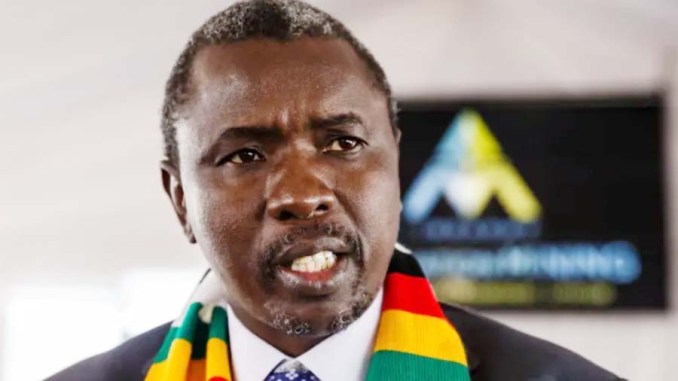A PARLIAMENTARY Portfolio on Public Accounts (PAC) has said Treasury Bills advanced to Sakunda Holdings to support the nations command agriculture programme was above board.
In a statement, the oil company company said that the programme had been granted special national project status by cabinet as legally required for all strategic national projects, hence there was nothing dodgy or illegal. It said similar economic interventions had also been made in the recent past.
This comes after reports of alleged corruption and abuse of the specialised maize production programme.
“The contracts were facilitated by the special cabinet authority and thus were not subjected to public tendering processes,” Sakunda said.
“The government uses special cabinet authority in exigent circumstances, such as guaranteeing food security through initiatives like command agriculture.
Several companies have over the years been awarded contracts to undertake national projects via special cabinet authority.”
Sakunda further argued that the mutable figures exposed “desperation by anti-Zimbabwe politicians and non-governmental organisations to tarnish the company’s image”.
“At first, it was US$6 billion dollars. Within a few months. It was down to $3 billion. A few weeks ago, the figure had declined to roughly US$1,3 billion. And now, we are told it is US$90 million,” the company said.
“This is the amount of money that a group of anti-Zimbabwe politicians and NGO-funded ‘investigators’ have variably claimed to have been looted by Sakunda Holdings through its participation in the successful command agriculture programme from 2016 to 2019.”
A Treasury Bill is a negotiable debt instrument issued by the Government through the minister of Finance and Economic Development.
A report by US-based based investigative and policy organisation, The Sentry, titled: Legal Tender? The role of Sakunda and the Reserve Bank of Zimbabwe (RBZ) in Command Agriculture, claimed that Sakunda redeemed TBs it held under the US$1 billion command agriculture programme at a skewed exchange rate approved by the Reserve Bank of Zimbabwe, while 67% funds for the facility were not recovered by 2018.
Sakunda said the varying figures just showed the “lies” being peddled by the “anti-government proponents”.
At first, The Sentry report estimated the alleged total prejudice at US$6 billion, before revising it downwards to US$3,6 billion. It was further whittled down to US$1,2 billion, according to the Sentry latest report.
Sakunda added: “From an initial claim of $6 billion, the figure has shrunk to the $90 million alleged in the sentry’s latest report published on March 17, 2022. So why has the figure fallen by nearly $5,9 billion from $6 billion to below $100 million? Is it – as posited by some observers – a realisation by the accusers that they cannot substantiate their billion-dollar claims?”
“Or is the latest climb-down related to the March 3, 2022, report by the opposition-chaired public accounts Committee of the Parliament of Zimbabwe, which found that Sakunda fully accounted for its participation in the Special Maize Import Substitution Programme (command agriculture).”
“So perhaps the parliamentary report clearing Sakunda of any wrongdoing has prompted the latest climb-down, which brings the figure of allegedly looted money from $6 billion to $90 million.”
The parliamentary public accounts committee (Pac), in its report early this month total payments to Sakunda for 2017 was $378,739,319.75 and for 2018 it was $235,954,143.85.
It pointed out that several other companies had also benefited from the special cabinet authority to participate in improving agriculture.
“Total payments in 2017 and 2018 for presidential scheme is $573,392,887.33 (paid to FSG – $ 392,853,180.22; Quton – $19,753,638.00; Pedstock – $7,538,441.69; Cottco – $30,898,812.65; Sakunda $51,205,481.25; Sable Chemicals – $4,900,00; Seedco –$40,150,000.00; Valley Seeds – $8,700,000; Windmill – $17,800,000; and ZFC – $17,750,000.)”








